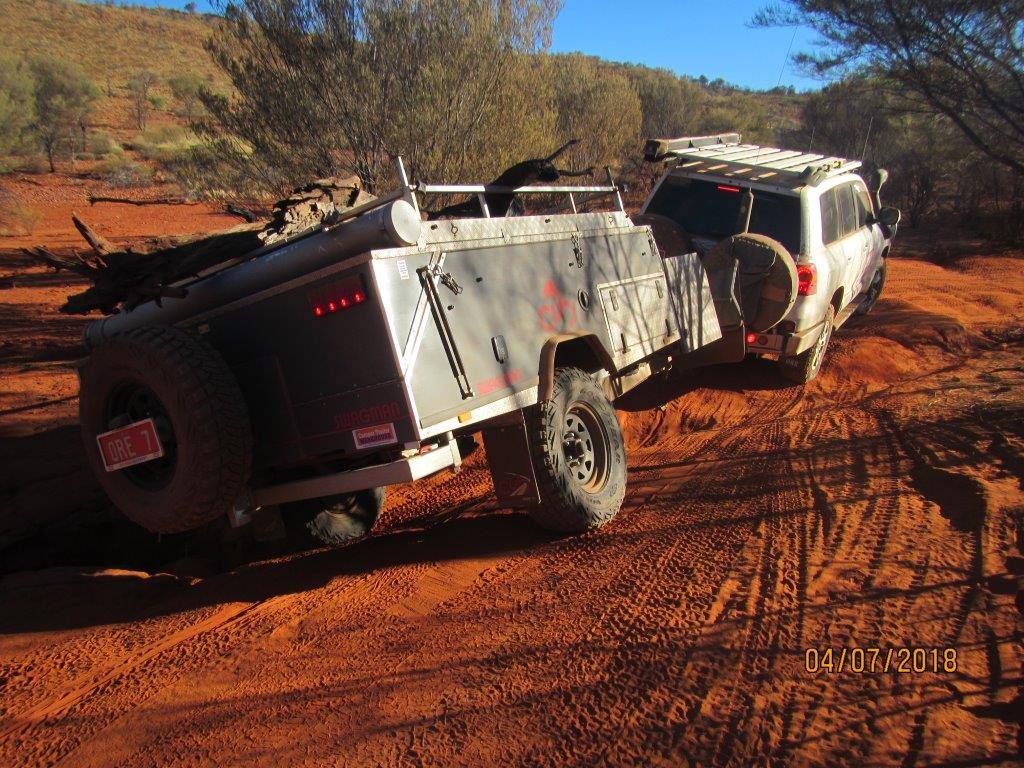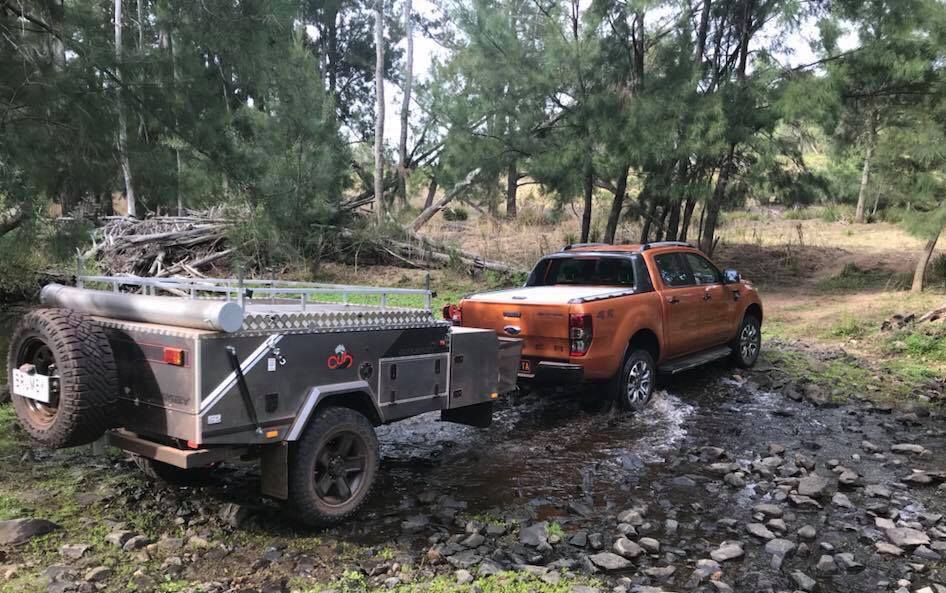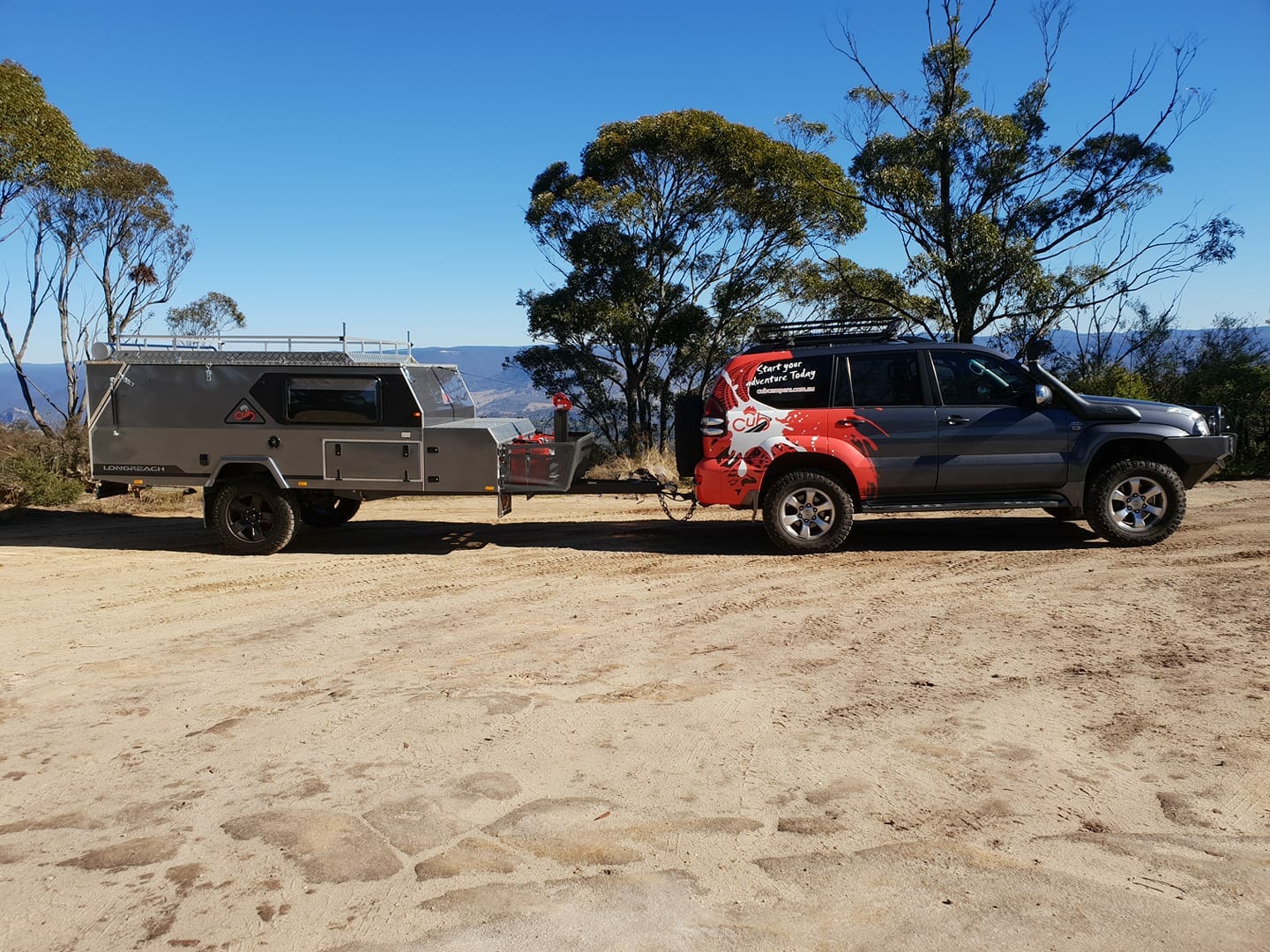
Towing a camper trailer can be a blast. After all, you’ve got accommodations on wheels that can go pretty much wherever the road takes you! The world is your playground when you have a camper trailer, but it can be tricky to ensure you’re towing one correctly. We’ve put together the best tips for towing a camper trailer to ensure your holiday is smooth sailing, because once you get the hang of it, towing a camper trailer is one of the best experiences a family can have!
- Towing Capacity
Abiding by the towing capacity is step one for towing a camper trailer. While most crossovers and trucks (and some cars!) can handle camper trailers, it’s best to double check the weight limit just to be safe. Going over, or even too close, to the limit can start to wreak havoc on your vehicle. Everything from the brakes to the tires start to wear down faster, the engine can overheat and cause damage to the transmission, and your vehicle could eventually fail. Plus, the extra weight can cause you to lose traction on the road, to dangerously sway, and can delay the effectiveness of your brakes in an emergency. While you definitely don’t need a giant truck for towing a camper trailer, always abide by the towing capacity guidelines of your vehicle (which can be found in your owner’s manual) for road safety.

- Distribute Weight
Packing smart is essential when towing a camper trailer. While tow-capable vehicles and quality camper trailers are made to carry a serious load, you don’t want to overburden your vehicle with extraneous weight. Not only will this guzzle up gas, but it may cause dangerous sway while driving. Plus, over time the wear and tear on your vehicle can add up if your camper trailer is too heavy. Don’t worry about packing the usual camping gear, but if you were thinking about tossing heaps of unnecessary extras in your camper trailer, you could be in trouble.
When you do have your final packing list, make sure to distribute the weight evenly throughout your camper trailer to ensure that your trailer doesn’t tip towards one end or the other. You should actually aim to have more of the weight on the front end, because too much weight in the back can cause it to swing as you drive.
- Drive Carefully
If you’re new at towing a camper trailer, your best bet is to take it slow. While that might seem obvious, it takes a while to get used to the weight and movement of a camper trailer, and you don’t want to risk damage to your new trailer (especially with all those great family vacations to come!). Plan out your route ahead of time to avoid sharp, sudden turns or unexpected exits, and make sure you use your turn signals early enough to give other drivers plenty of warning. Set aside a few buffer hours to get to your campground so that you don’t feel pressured to go too fast for your comfort (but stay in the slow lane just in case).

- Park Carefully
One of the toughest things about towing a camper trailer is the possibility of having to back up. Try as you might to avoid it, it will happen at one point. You absolutely want to avoid jackknifing, which is when your trailer suddenly spikes out behind you at an unpredictable angle that can be dangerous to you, other drivers, and pedestrians. To avoid doing so, back up very slowly and keep your eyes on all your mirrors. If you’re finding you’re not getting enough visibility with your current side and rear-view mirrors, consider upgrading them to larger mirrors to be able to accurately gauge where your trailer is going (most mechanics and dealerships can order you the right ones). Whenever you can, pull through into a double-parking spot to give yourself plenty of space and to avoid having to back out when it’s time to leave.
- Take Regular Breaks
If you’re a new trailer owner, it definitely pays to double and triple check your work. Once you’re out on the open road, take breaks every few hours and look over your trailer and the hitch (this will also keep you more alert while driving!). You want to make sure the hitch is secure, the safety chains are in place, your mirrors are in place, tires feel full, and nothing is loose. Over time, this will become a habit every time you stop for a coffee or food break, but it’s a habit that can save you tons in potential repairs or replacement parts down the road.
